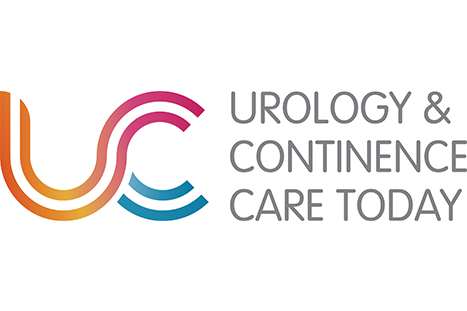.jpg) Serena Wyman, fundraising manager, The Urology Foundation
Serena Wyman, fundraising manager, The Urology FoundationDiseases and cancers of the kidneys, bladder, prostate and male reproductive organs are becoming more prevalent and devastating the lives of thousands of men, women and children in the UK and Ireland. For example:
- There are around 13,100 new kidney cancer cases in the UK every year, that’s 36 every day (2015–2017). Since the early 1990s, kidney cancer incidence rates have increased by almost nine-tenths (87%) in the UK (Cancer Research UK/Kidney Cancer statistics)
- There are around 48,500 new prostate cancer cases in the UK every year, that’s more than 130 every day (2015–2017). Since the early 1990s, prostate cancer incidence rates have increased by around two-fifths (41%) (2015– 2017) (Cancer Research UK/Prostate Cancer statistics)
- 18,000 people are diagnosed with invasive and non-invasive bladder cancer each year in England alone (Kockelbergh et al, 2017)
- Emergency urinary tract infection (UTI) admissions almost doubled since 2013 (NHS Digital, 2017)
- One quarter (25%) of all surgical referrals to hospital are for urological conditions — increasing by one fifth (20%) over recent years (source: British Association of Urological Surgeons [BAUS] — www.baus.org.uk/ ).
TUF is committed to finding better treatments and cures, and nurturing urology and other healthcare professionals, such as community nurses, to deliver better care to people affected by a urology condition. Our mission is to increase survival and improve quality of life for people with urology disease.


For this reason, TUF has invested in a variety of different, yet pioneering projects. The foundation has funded urologists and urology nurses to research into better solutions for people with prostate, bladder and kidney cancers. TUF has also helped improve outcomes for patients through its funding of robotic surgery and has funded multiple projects seeking to improve pelvic floor repair materials for urinary incontinence sufferers, as well as much more.
Therefore, TUF is always pleased to support World Continence Week, which takes place annually in June, and led us in 2014 to launch the public awareness initiative — Urology Awareness Month (UAM) — which runs throughout September. Urology Awareness Month is dedicated to increasing knowledge and awareness in the public about urological conditions, their prevention, and treatment. We offer on our website bitesize guides on urology conditions, as well as fact sheets on subjects such as living with incontinence.
At TUF, we recognise that urological conditions can be difficult for many people to talk about and a great deal of our messaging throughout the year, not just during UAM, is targeted at ending this taboo and silence. Incontinence, something that community nurses encounter regularly, seems to be a particular issue, despite being a condition suffered by around a third of the population. As incontinence can be caused by a number of conditions, or events such as childbirth, surgery and old age, it is something that effects patients across all age groups.
Individuals can order, for a small donation to cover post and packaging, cards direct from our website.
If, as a healthcare professional, you would like to offer the Need to Pee card to your patients, please email: info@theurologyfoundation.org (TUF can supply packs of 30 cards for £10).

We are proud of our association with the British Association of Urology Nurses (BAUN), which includes supporting the Urology Nurse of the Year award and working with them on future nurse training and development courses, with this year’s pilot communication training course sadly having to be postponed for all too obvious reasons. Our smaller research projects fund, open to applications from nurses, was set up to fund projects for patient benefit that seek to improve services and treatments and communications with patients and carers. The outcomes of the study must be measured and evaluated and demonstrate improved care and wellbeing of patients. The next round of application funding is 31 May 2022. We also offer a £500 travel grant for nurses to attend courses or conferences aimed at improving their urological skills or expertise. Working with researchers, urology and healthcare professionals such as yourselves, we are improving the nation’s urology care. TUF is dedicated to beating all urology diseases through cutting-edge research and leading education and training to ensure that fewer lives will be devastated.
FOR MORE INFORMATION
To find out more, visit: www.theurologyfoundation.org or contact us at: info@theurologyfoundation.orgReferences
- Kockelbergh R, Hounsome L, Mayer E (2017) The epidemiology of urological cancer 2001–2013. J Clin Urol 10(1S): 3–8
- National Association for Continence (2020) The true impact of incontinence. Available online: www.nafc.org/bhealth-blog/the-true-impact-of-incontinence
- NHS Digital (2017) Emergency admissions for acute conditions that should not usually require hospital admission. Available online: https://bit.ly/3goJMx7
- NHS England (2018) Excellence in continence care. Practical guidance for commissioners, and leaders in health and social care. Available online: www.england.nhs.uk/wp-content/uploads/2018/07/excellence-in-continence-care.pdf
- Roe B (2001) Incontinence and sexuality: findings from a qualitative perspective. J Adv Nurs 30(3): 573–9
- TENA UK (2020) Mental health and incontinence. Available online: www.tena.co.uk/articles/mental-health-and-incontinence
